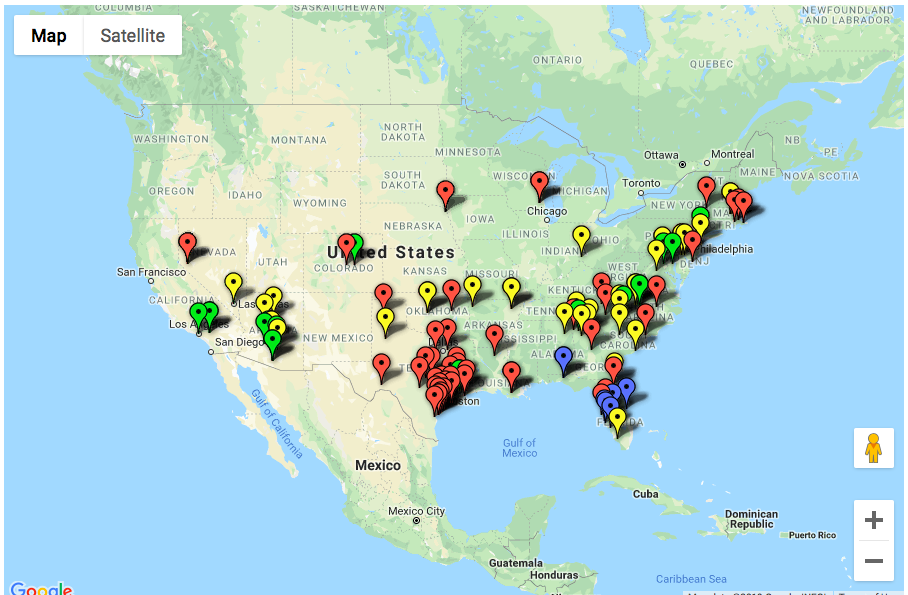Let’s End 287(g)!
Read more about InAlienable.Support Quixote Center's InAlienable program!
InAlienableDaily Dispatch
May 22, 2019

Around the country, different localities have signed “287(g)” agreements with Immigration and Customs Enforcement. 287(g) agreements deputize local law enforcement to enforce immigration law. This can include inquiring about someone’s immigration status during routine traffic stops or other interactions with police, and detaining people until ICE takes custody of them.
287(g) agreements have been signed with 81 localities in 21 states. Almost all of them are set to expire on June 30, 2019. This creates an opportunity for communities around the country to mobilize to block extension of these agreements. From the Center for American Progress:
Under President Trump’s punitive immigration agenda, sweeping changes to immigration enforcement within the United States included rebooting the controversial federal-local partnership known as 287(g), through which state and local law enforcement officers act as ICE deputies. While the Trump administration did not create the 287(g) program, it views it as a critical tool in its ability to deport as many undocumented immigrants living in the United States as possible. Today, ICE has 287(g) contract agreements with 81 law enforcement agencies in 21 states, two-thirds of which were signed during the Trump administration.
The decision to collaborate through a 287(g) agreement is purely discretionary, and state and local officials can terminate these agreements at any time. Over the next month, jurisdictions must choose whether they will side with President Trump’s immigration policy by continuing their collaboration on federal immigration enforcement or protect their communities and prioritize public safety by not renewing their expiring 287(g) partnerships.
287(g) agreement cost communities a lot of money!
Not only is the 287(g) program riddled with transparency and oversight flaws, but it also threatens local economies and communities. According to previous CAP analysis of 40 participating 287(g) jurisdictions, immigrant households in these localities contributed $24.4 billion in annual tax revenue and generated $65.9 billion in spending power. Localities signing up for this voluntary program are thus doing so at the risk of losing these vital economic contributions.
Read the full story from the Center for American Progress.
There has been resistance to 287(g) agreements almost everywhere they have been signed. In the current context, mobilizing communities to demand local officials do not re-sign agreements with ICE can be effective.
The Immigrant Legal Resource Center maintains a map of 287(g) agreements - this includes current agreements and the 21 communities that have organized to suspend these agreements. See if your community is on this list and get connected to a campaign to let these agreements expire.

